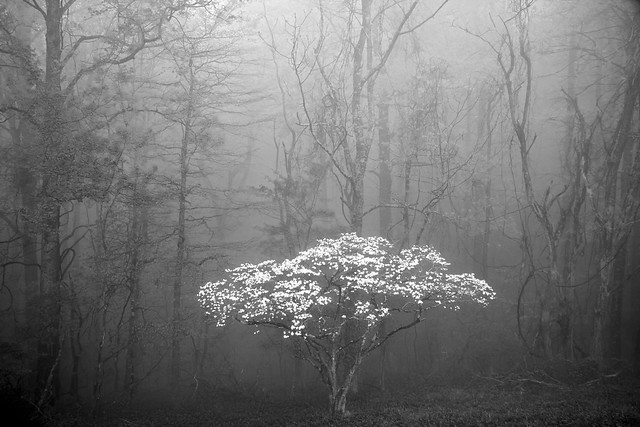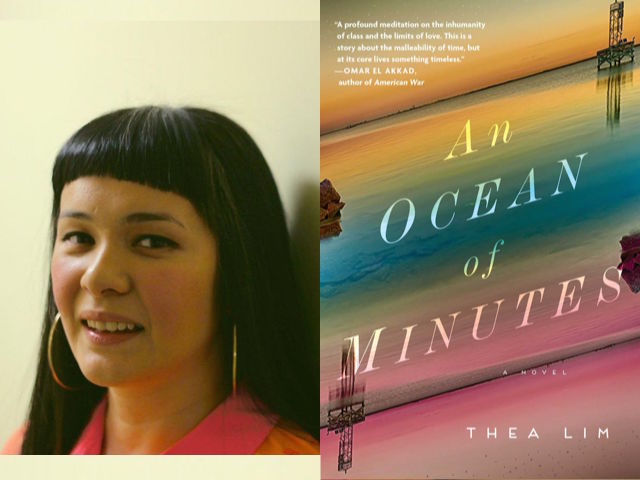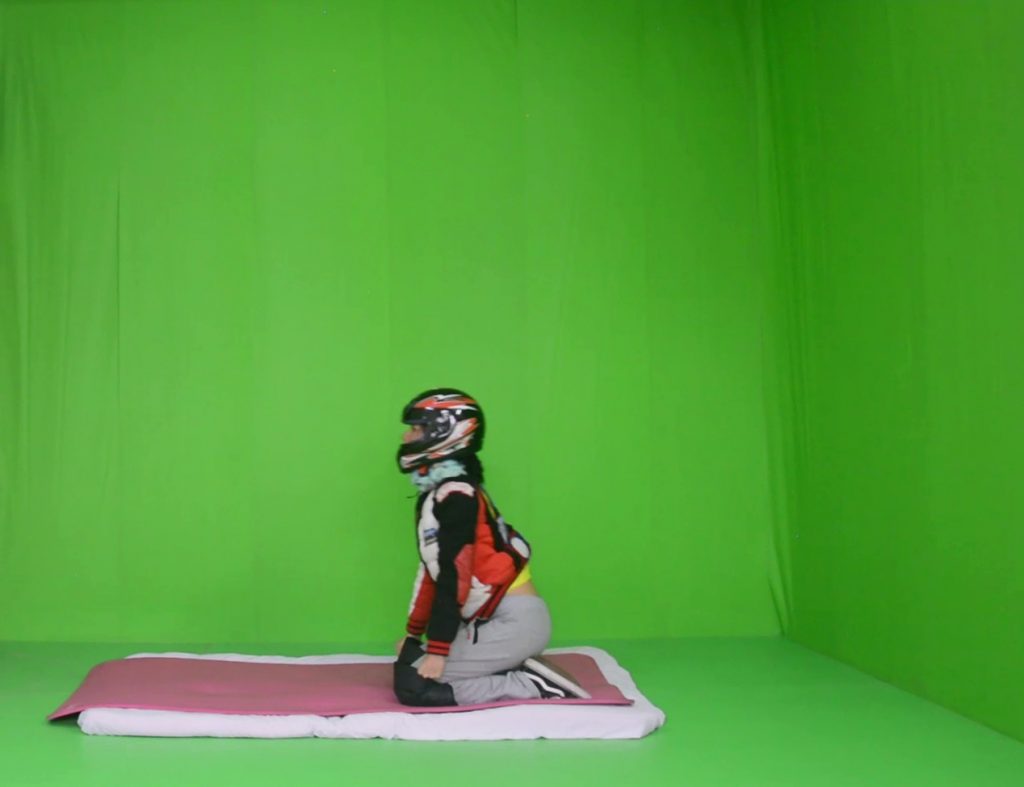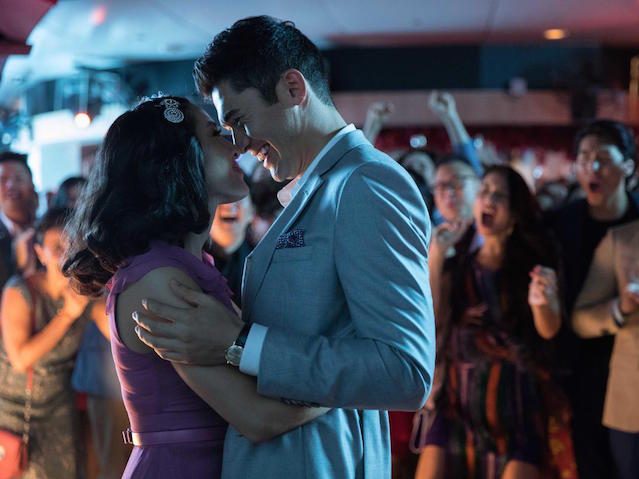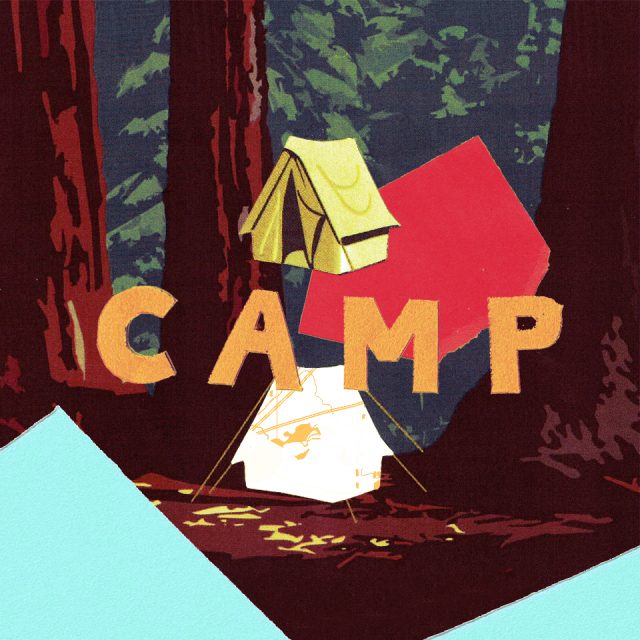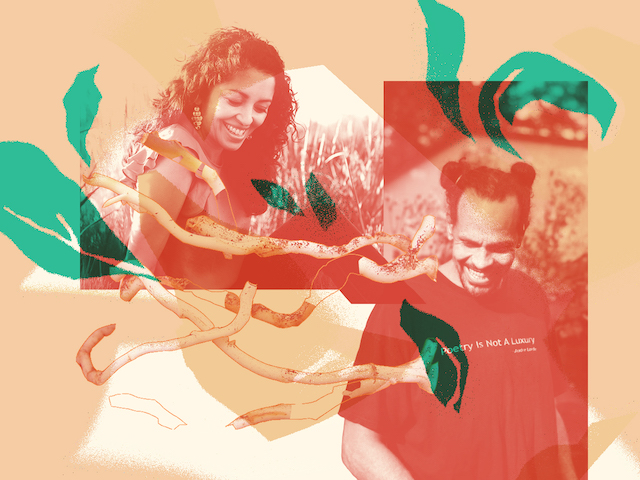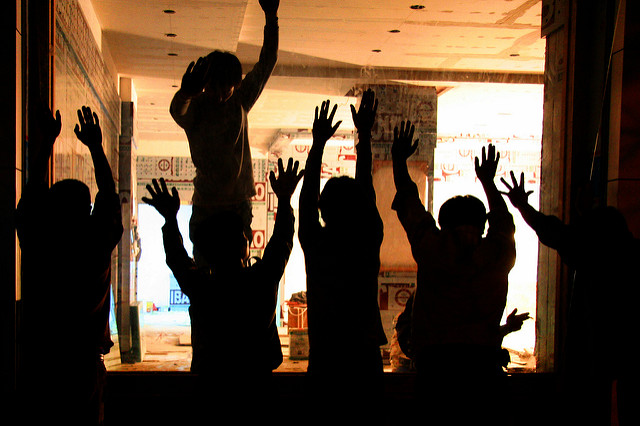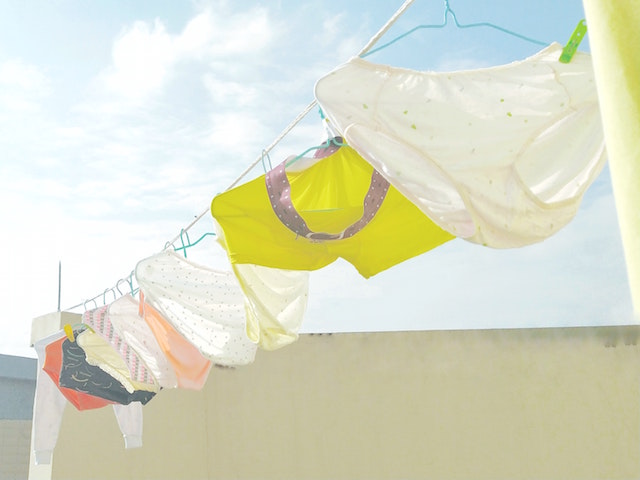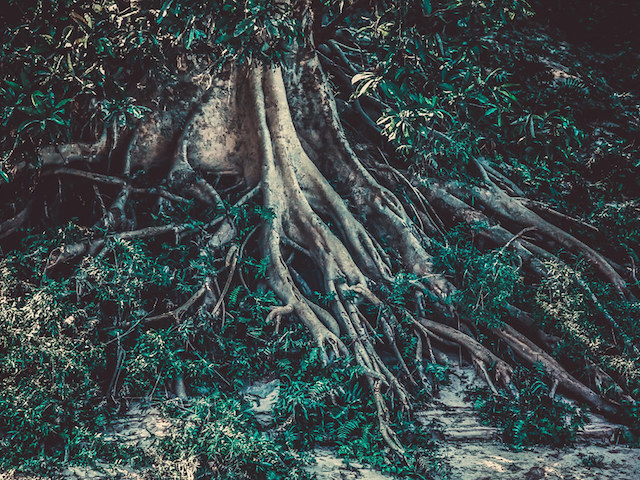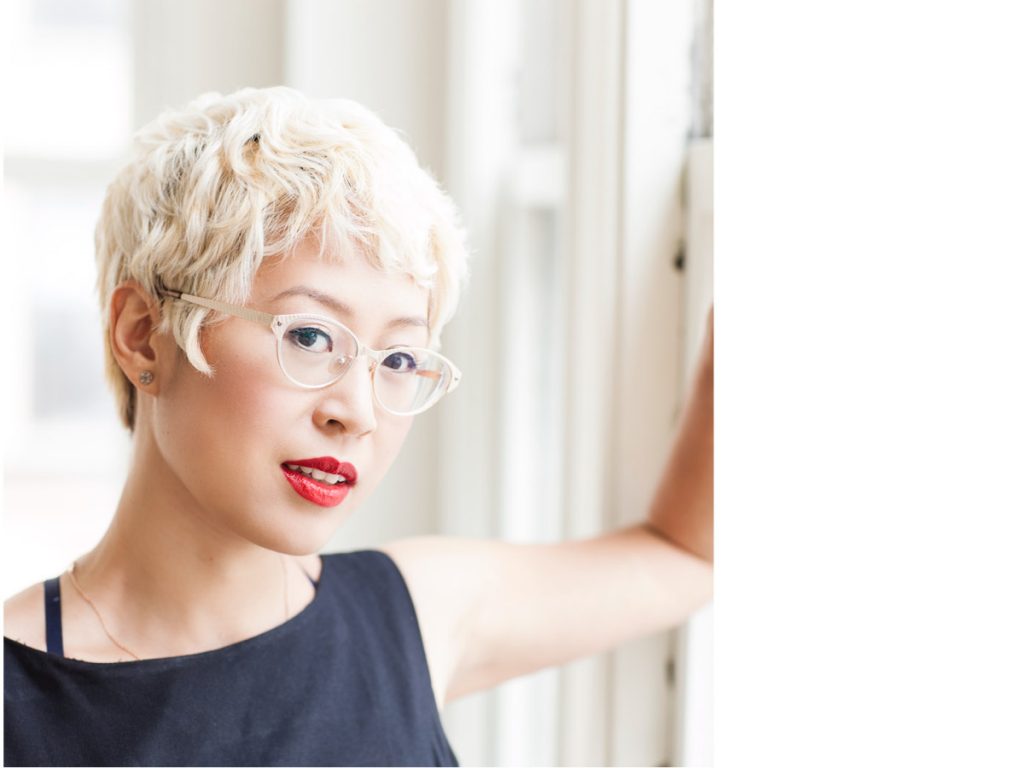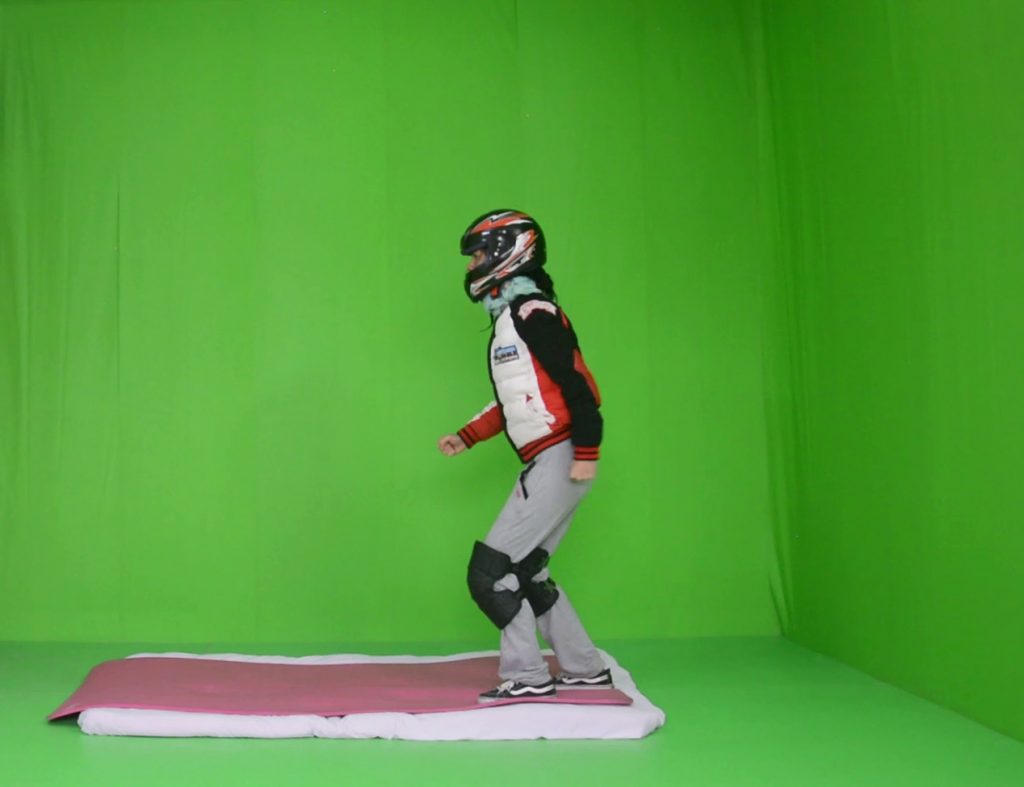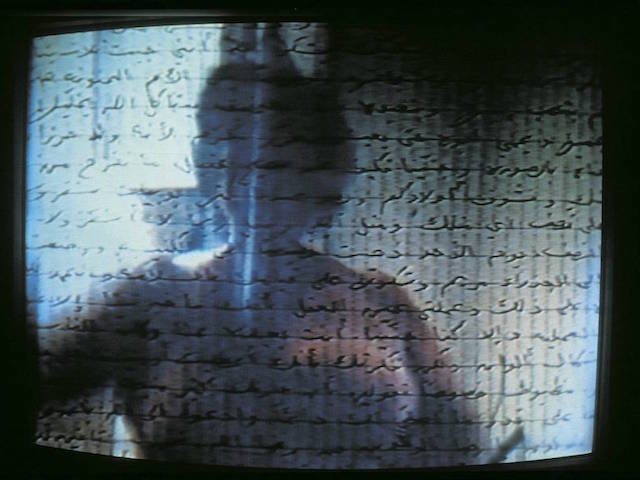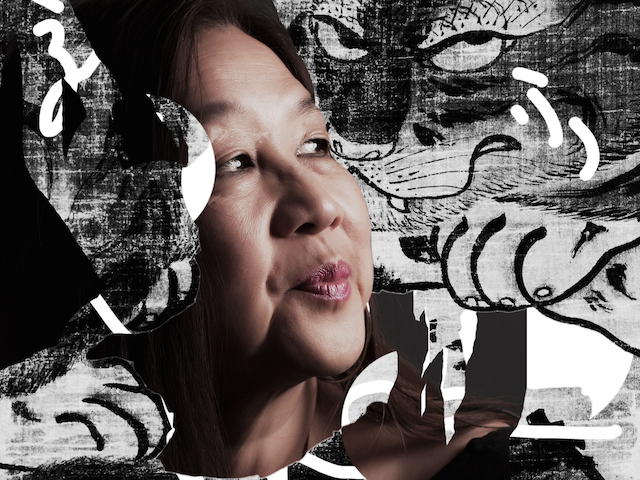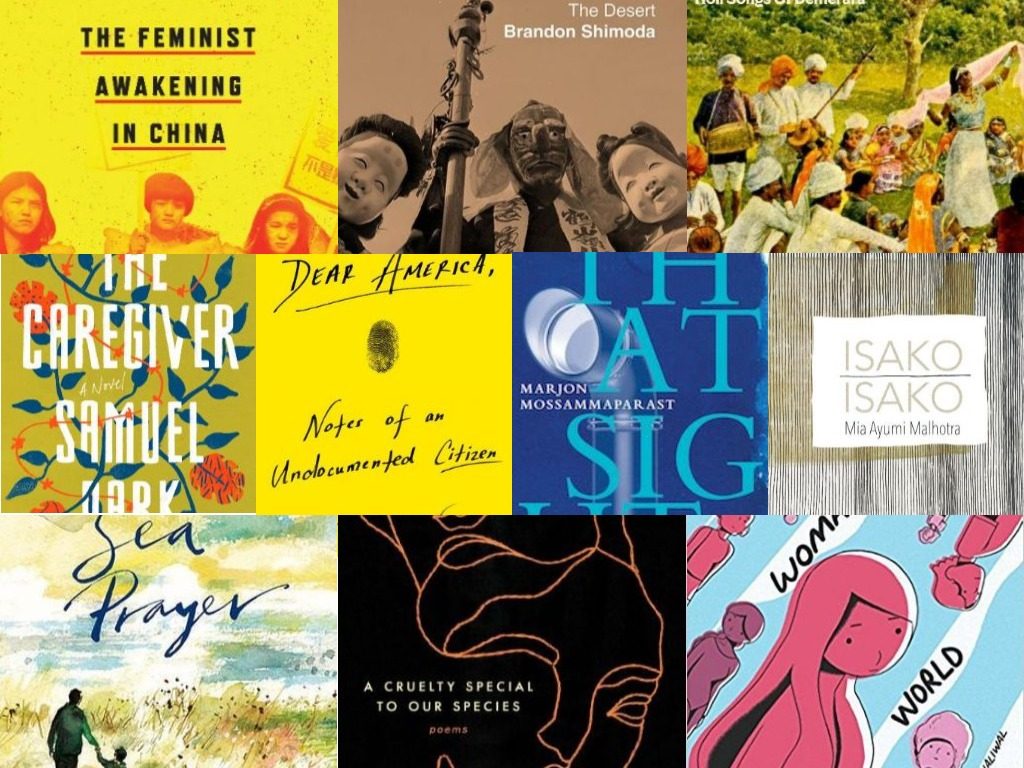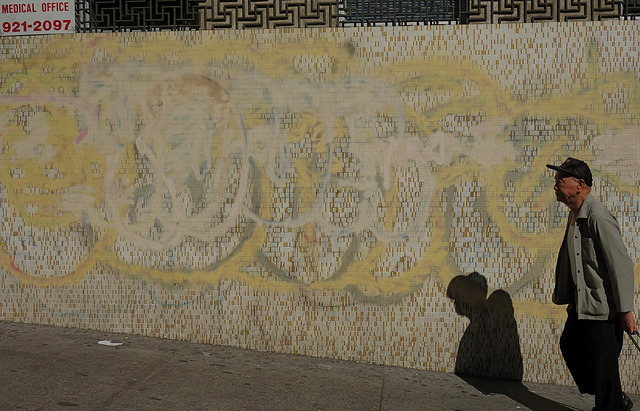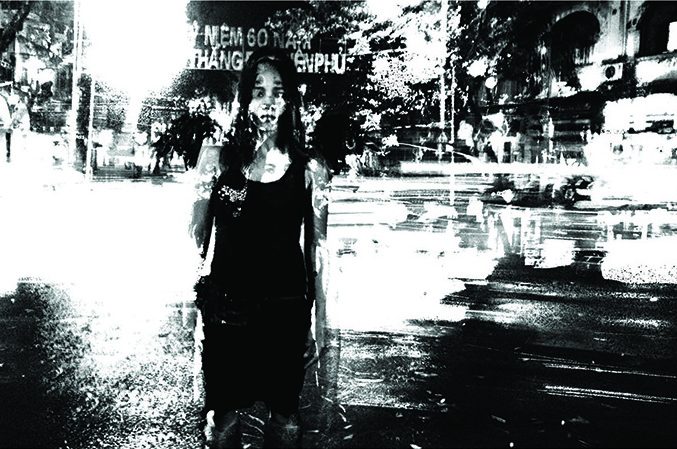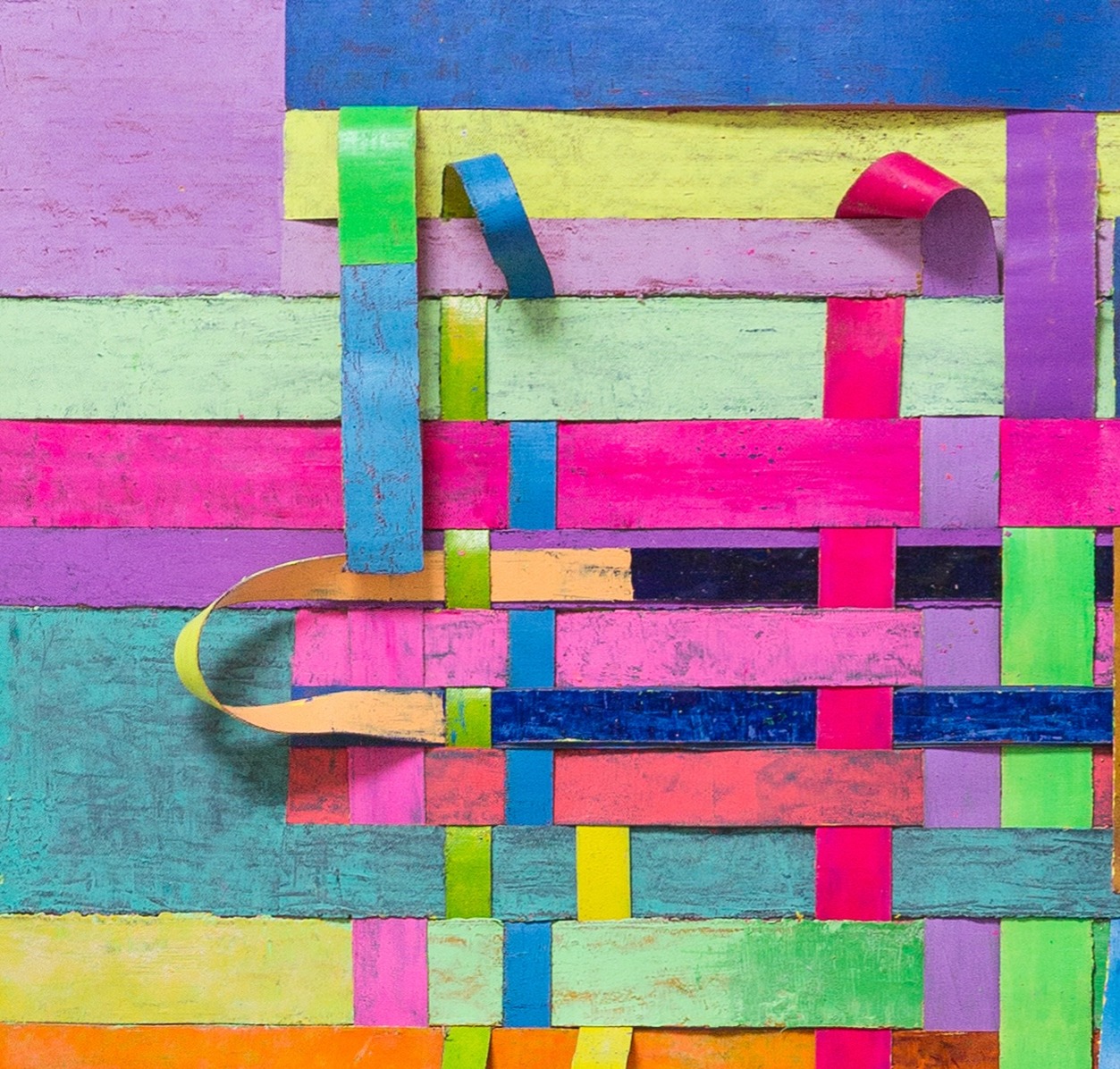
لكن المنـفى ينبت مرة أخرى كالحشائـش البرية تحت ظلال الزيتـون | Exile sprouts anew, like untamed grass beneath the shade of olive trees
Muslim American women explore new paths to romance via technology.
we dog eating people / eating off each other / bear the vaguely dog / sounding name stairs
Meena Alexander’s work shimmered with beauty but always—always—the tension of violence quivered just beneath
The author of An Ocean of Minutes talks the terror of time travel, immigrant fiction, and capturing grief in writing.
As soon as they touch your saliva, the filaments dissolve. Their structure can’t sustain the contact. The sweetness is the taste of collapse.
She’s here to see us off. / Her voice is the softest ligature, unthreading. / Why are you saying goodbye to everyone except for me who raised you?
For a film that positions itself as a watershed in the Asian American rom-com canon, when tasked with illuminating romance’s political valences, Crazy Rich Asians pulls up short.
A collection of essays, poems, and stories by Asian American writers that trouble, expand, and redefine the space of the camp
The poets talk creative collaboration, gardening, epistolary poetry, and the intimacy of sentences.
i say i’ll be / dressless, skinless, curated / and pickled. i say i’ll give it / all up for a chance to be warm.
치마를 까뒤집던 꽃들이 / 태양의 먼 어깨 위로 투신한다 / 나무들이 입던 속옷을 벗어 깃발처럼 흔드는 정원에서
O whose chant do I hear in these halls recalling my deeds, or my debts, the structure / of the cancer room, a storm that once wiped Laos clean of sin a thousand years ago?
The author of The Collected Schizophrenias speaks to the challenge of telling truths when writing about a disorder that lies over and over again
Tonight, too, there are turning lines…/ I say I do not know, do not know.
The majority of Palestinians live outside of the occupied territories, awake within a paradox: If it is a demand of land that tethers us, what do we make of those millions of us without a memory of the land to cling to?
Marilyn Chin talks bad girl haikus, pissing off your ancestors, and her new career-spanning collection, A Portrait of the Self as Nation.
Salman Rushdie’s newest, Marie Lu’s anticipated sequel, Khaled Hosseini’s illustrated short, and Emily Yoon’s sharp-edged poetry.
A personal history of race and the American outdoors, from Chicago’s Red Summer to Japanese American incarceration
With only the moonlight, we could barely see what we’d tag. All around my tag were faded names, names we didn’t bother to read in the dark—our graffiti forebears. One day, we too would be unread.
Mythologies have their way of explaining the basic human condition: that there will always be some where or thing you wish to get to or back to.
Muslim American women explore new paths to romance via technology.
치마를 까뒤집던 꽃들이 / 태양의 먼 어깨 위로 투신한다 / 나무들이 입던 속옷을 벗어 깃발처럼 흔드는 정원에서
we dog eating people / eating off each other / bear the vaguely dog / sounding name stairs
O whose chant do I hear in these halls recalling my deeds, or my debts, the structure / of the cancer room, a storm that once wiped Laos clean of sin a thousand years ago?
Meena Alexander’s work shimmered with beauty but always—always—the tension of violence quivered just beneath
The author of The Collected Schizophrenias speaks to the challenge of telling truths when writing about a disorder that lies over and over again
The author of An Ocean of Minutes talks the terror of time travel, immigrant fiction, and capturing grief in writing.
Tonight, too, there are turning lines…/ I say I do not know, do not know.
As soon as they touch your saliva, the filaments dissolve. Their structure can’t sustain the contact. The sweetness is the taste of collapse.
The majority of Palestinians live outside of the occupied territories, awake within a paradox: If it is a demand of land that tethers us, what do we make of those millions of us without a memory of the land to cling to?
She’s here to see us off. / Her voice is the softest ligature, unthreading. / Why are you saying goodbye to everyone except for me who raised you?
Marilyn Chin talks bad girl haikus, pissing off your ancestors, and her new career-spanning collection, A Portrait of the Self as Nation.
For a film that positions itself as a watershed in the Asian American rom-com canon, when tasked with illuminating romance’s political valences, Crazy Rich Asians pulls up short.
Salman Rushdie’s newest, Marie Lu’s anticipated sequel, Khaled Hosseini’s illustrated short, and Emily Yoon’s sharp-edged poetry.
A collection of essays, poems, and stories by Asian American writers that trouble, expand, and redefine the space of the camp
A personal history of race and the American outdoors, from Chicago’s Red Summer to Japanese American incarceration
The poets talk creative collaboration, gardening, epistolary poetry, and the intimacy of sentences.
With only the moonlight, we could barely see what we’d tag. All around my tag were faded names, names we didn’t bother to read in the dark—our graffiti forebears. One day, we too would be unread.
i say i’ll be / dressless, skinless, curated / and pickled. i say i’ll give it / all up for a chance to be warm.
Mythologies have their way of explaining the basic human condition: that there will always be some where or thing you wish to get to or back to.


